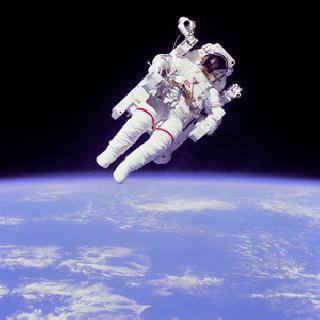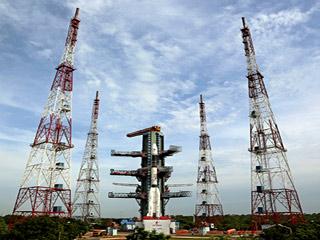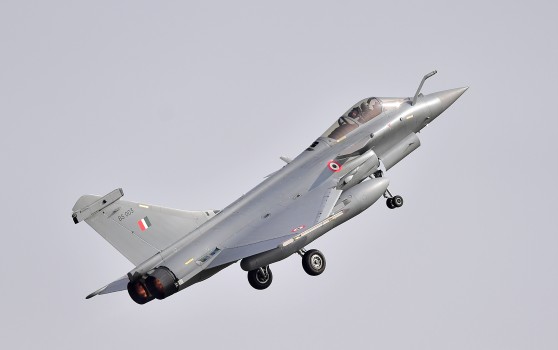
A file photo.
BANGALORE (PTI): India's proposed human spaceflight programme that generated considerable excitement in the second half of the last decade is off the priority list of ISRO, with the mission being ruled out before 2017.
The ambitious venture that could have electrified the entire space programme and given New Delhi a vantage position as a human space transportation provider after Russia and China does not figure in the Space Department's 12th plan (2012-2017). The US is out of business with decommissioning of its space shuttle programme.
Chairman of Indian Space Research Organisation K Radhakrishnan says "very good progress" has been made in terms of developing critical technologies for the mission (which has been on the drawing board since 2002) but refuses to commit a time-frame for the launch.
"We have not declared it as a programme. We must have a reliable, man-rated vehicle (GSLV). Both are important", Radhakrishnan, also Secretary in the Department of Space and Chairman of Space Commission, told PTI here.
"We are not going to see the human spaceflight as a programme in the 12th plan. We will see may be later. It has to be seen after that".
"Even for you to talk about it, you have to have certain new technologies which are involved in the human space flight programme. Thats what we are addressing".
The programme's objective is to undertake a mission to carry a crew of two or three members to 300 km Low Earth Orbit (LEO) and return them safely to a predefined destination on Earth.
Currently, the pre-project activities to study technical and managerial issues related to the mission are progressing with a focus on development of critical technologies for sub-systems such as Crew Module (CM), Environmental Control and Life Support System (ECLSS) and Crew Escape System.
In 2006, ISRO organised a meeting to discuss the issues related to the mission, which was attended by about 80 senior scientists from across the country.
The concept for the mission included development of an autonomous orbital vehicle which could be launched by India's Geo-synchronous Satellite Launch Vehicle, GSLV-Mk II or GSLV-Mk III. ISRO has maturity in many technologies required for the mission but new developments are required in life support systems, improved reliability and safety and crew escape system, among others.
While some of the facilities required are available in the country and could be used with augmentation, a few had to be established afresh. The preliminary estimated cost at the time for the mission was Rs 10,000 crore, spread over a period of eight years, and the scientists were unanimous in suggesting the time is appropriate for India to undertake such a venture.
Radhakrishnan said good progress has been made on development of critical technologies for the programme, including in ECLSS, crew module, crew escape system and flight suite.
"We have done some good tests on the ground on the rocket motors required for the crew escape system. We are going to have pad abort test soon in Sriharikota", he said.
He rejected suggestions that the proposed mission is losing momentum, arguing it boils down to priorities, adding the focus now is to first have the operational rocket. "Today, it's about GSLV and our ability to put larger communication satellites from India. Our priority is cryogenic engine".
"We are not losing momentum.When you decide on having the programme, you will be in a good condition to start. You don't start from zero", he said.
Radhakrishnan pointed out when the scientists had given the go-ahead for the mission in 2006, ISRO had undertaken two good flights of GSLV but the rocket suffered failures twice in 2010, one with indigenous cryogenic engine and another with the imported Russian one. "Today, we don't have a vehicle (rocket)".
Incidentally, ISRO has proposed to flight-test GSLV with indigenous cryogenic engine for the first time in more than three years on August 19 from the spaceport of Sriharikota.
ISRO also plans to undertake the Mars mission later this year.
 Next Article
Next Article













The Indian Air Force, in its flight trials evaluation report submitted before the Defence Ministry l..
view articleAn insight into the Medium Multi-Role Combat Aircraft competition...
view articleSky enthusiasts can now spot the International Space Station (ISS) commanded by Indian-American astr..
view article